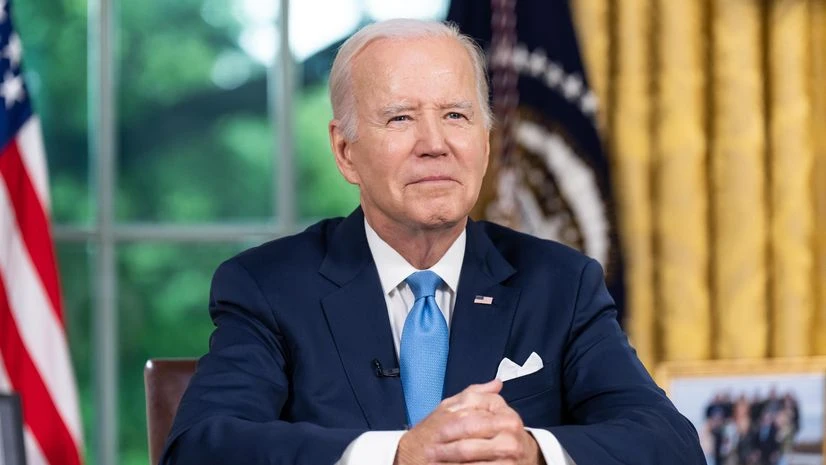President Joe Biden declared Monday that the United States and NATO played no part in the Wagner mercenary group's short-lived insurrection in Russia, calling the uprising and the longer-term challenges it poses for President Vladimir Putin's power a struggle within the Russian system.
Biden and U.S. allies supporting Ukraine in its fight against Russia's invasion emphasized their intent to be seen as staying out of the mercenaries' stunning insurgency, the biggest threat to Putin in his two decades leading Russia. They are concerned that Putin could use accusations of Western involvement to rally Russians to his defense.
Biden and administration officials declined an immediate assessment of what the 22-hour uprising by the Wagner Group might mean for Russia's war in Ukraine, for mercenary chief Yevgeny Prigozhin or for Russia itself.
We're going to keep assessing the fallout of this weekend's events and the implications from Russia and Ukraine, Biden said. But it's still too early to reach a definitive conclusion about where this is going.
Putin, in his first public comments since the rebellion, blamed Russia's enemies and said they miscalculated. He did not specify whom he meant.
Over the course of a tumultuous weekend in Russia, U.S. diplomats were in contact with their counterparts in Moscow to underscore that the American government regarded the matter as a domestic affair for Russia, with the U.S. only a bystander, State Department spokesman Matthew Miller said.
American diplomats also stressed to Moscow that they expected Russia to ensure the safety of the U.S. Embassy in Moscow and Americans detained in Russia, Miller said.
More From This Section
In a video call between Biden and leaders of U.S.-allied countries over the weekend, all were determined to give Putin no excuse to blame this on the West," Biden told reporters at the White House.
We made clear that we were not involved. We had nothing to do with it, Biden said. This was part of a struggle within the Russian system.
Michael McFaul, a former U.S. ambassador to Russia, said that Putin in the past has alleged clandestine U.S. involvement in events including democratic uprisings in former Soviet countries, and campaigns by democracy activists inside and outside Russia as a way to diminish public support among Russians for those challenges to the Russian system.
The U.S. and NATO "don't want to be blamed for the appearance of trying to destabilize Putin, McFaul said.
(Only the headline and picture of this report may have been reworked by the Business Standard staff; the rest of the content is auto-generated from a syndicated feed.)

)
